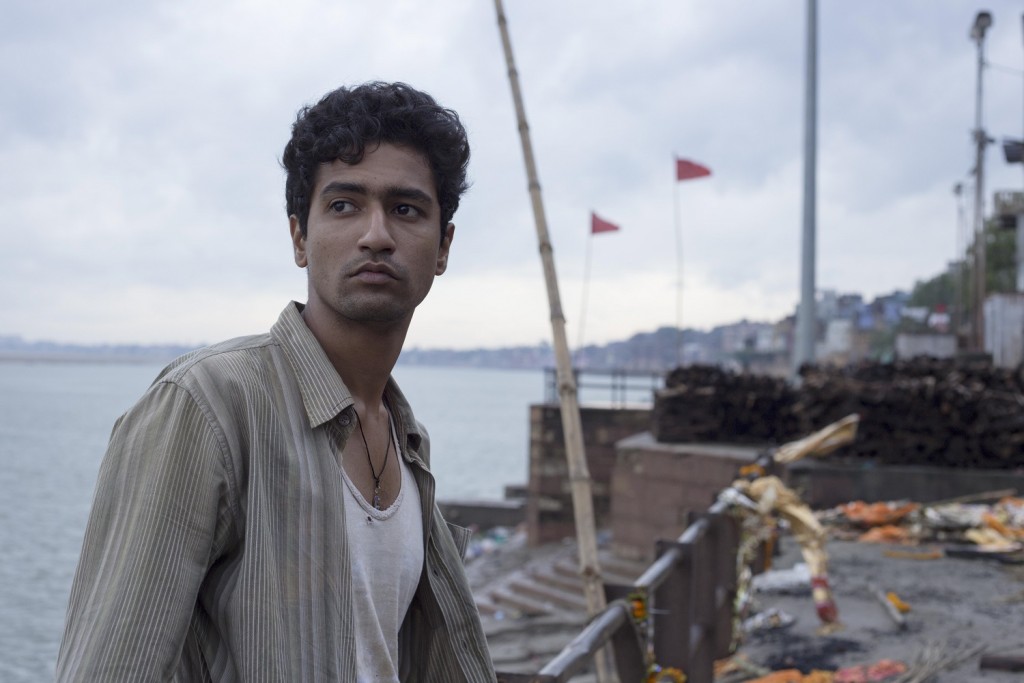The choice of locations, in the way it is shot, in the scene transitions that you may easily miss, in the smallest of lines that say more than you can imagine, the director Neeraj Ghaywan uses Benares to the fullest. It is an authentic, immersive experience to sit through Masaan.
The film ends with two of its protagonists having just met, and they embark on a boat ride to see the Triveni Sangam in Allahbad, the confluence of the two rivers Ganga and Jamuna, with the mythical third Saraswati present in spirit. Much like how their own lives intersect at that point, with the third protagonist – because of whom why they have come to meet in Allahbad – being present in spirit.
Such is the poetry of Masaan, a film about love and longing in Benares. A colloquial that refers to the more easily understood Hindi word “smashan” (a Hindu cremation ground), Masaan isn’t about death, writer Varun Grover explains in a radio interview. It is about the rite of passage. The lives of the three tumble along, mindfully unaware of each other, until two incidents bring them into collision – one in the beginning of the film, the other well into the second half. Both are tragic, and both remind you of the essence of the film. Life isn’t constant, and all you can do is move on with it.
The script brings together three stories. Deepak is a Dom, a member of a lowly caste who earn their living by burning bodies on the ghats of Benares. He is educated, and hopes for a better life for himself. Devi is an ambitious girl whose world view is bigger than the small homes and smaller minds of the people around her, and who is made to pay for it. Jonta is an orphan who earns his livelihood helping Devi’s father run a small shop along the banks of the river Ganga. It is a tightly written script, one that shows no effort in flowing from one story to another. The dialogue is minimum but efficient and authentic, the screenplay is languid and deep, and the quality of writing, shorn of frills and fancies, is sheer gold.
Deepak’s love story covers more conventional ground, and is watchable more for the charming performances of both the lovers than anything else. It is the flush of first love that keeps you hooked, as teenagers discover Facebook, adolescence, and love – things that seem anachronistic to the city of Benares. The choice of conflict could be debatable; it happily worked for me. I found Devi’s track to be more compelling. Her suffering is not the result of unfortunate serendipity but conscious choice, and choice which is wrongly judged by a society that has not evolved, while she has. She cannot hide behind self-pity or sympathy, and she is all the more courageous for moving on with life. With the narrative being so steeped in the real world, you feel cheated how the film ends. It is too obvious, and seems “the easy way out” even if was not meant to be.
The choice of locations, in the way it is shot, in the scene transitions that you may easily miss, in the smallest of lines that say more than you can imagine, the director Neeraj Ghaywan uses Benares to the fullest. It is an authentic, immersive experience to sit through Masaan, to enjoy a story well told not with props and pretensions, but through poetry of great writing and brilliant performances of a wonderful cast of actors.
28 trains stop at Benares, you learn from one of Masaan’s bit characters. Don’t be surprised if you feel like buying a one-way ticket on one of them after watching the film.
Hindi, Drama, Color, 2015
https://youtu.be/IVZzYa0MxM8


